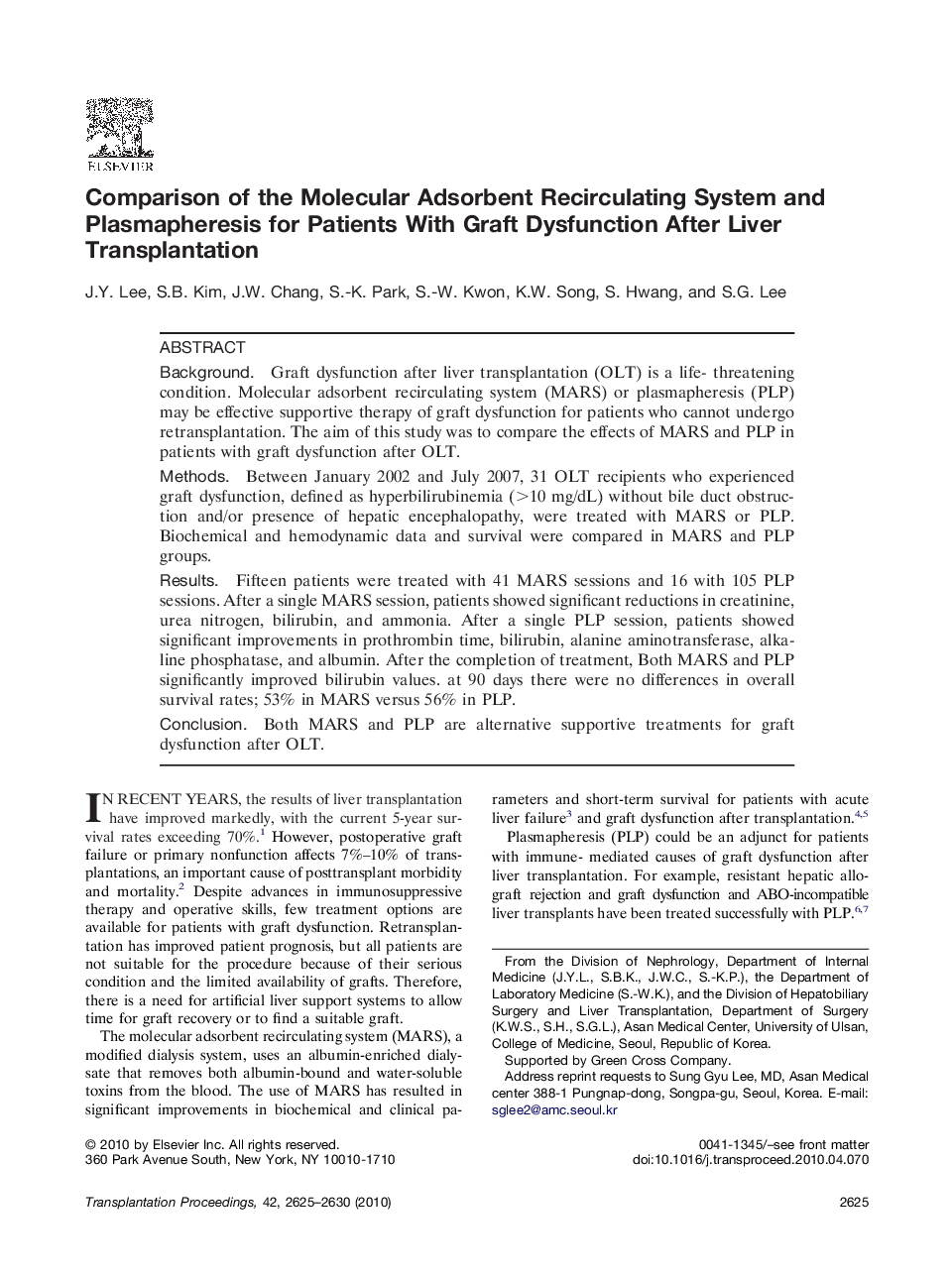| Article ID | Journal | Published Year | Pages | File Type |
|---|---|---|---|---|
| 4259450 | Transplantation Proceedings | 2010 | 6 Pages |
BackgroundGraft dysfunction after liver transplantation (OLT) is a life- threatening condition. Molecular adsorbent recirculating system (MARS) or plasmapheresis (PLP) may be effective supportive therapy of graft dysfunction for patients who cannot undergo retransplantation. The aim of this study was to compare the effects of MARS and PLP in patients with graft dysfunction after OLT.MethodsBetween January 2002 and July 2007, 31 OLT recipients who experienced graft dysfunction, defined as hyperbilirubinemia (>10 mg/dL) without bile duct obstruction and/or presence of hepatic encephalopathy, were treated with MARS or PLP. Biochemical and hemodynamic data and survival were compared in MARS and PLP groups.ResultsFifteen patients were treated with 41 MARS sessions and 16 with 105 PLP sessions. After a single MARS session, patients showed significant reductions in creatinine, urea nitrogen, bilirubin, and ammonia. After a single PLP session, patients showed significant improvements in prothrombin time, bilirubin, alanine aminotransferase, alkaline phosphatase, and albumin. After the completion of treatment, Both MARS and PLP significantly improved bilirubin values. at 90 days there were no differences in overall survival rates; 53% in MARS versus 56% in PLP.ConclusionBoth MARS and PLP are alternative supportive treatments for graft dysfunction after OLT.
